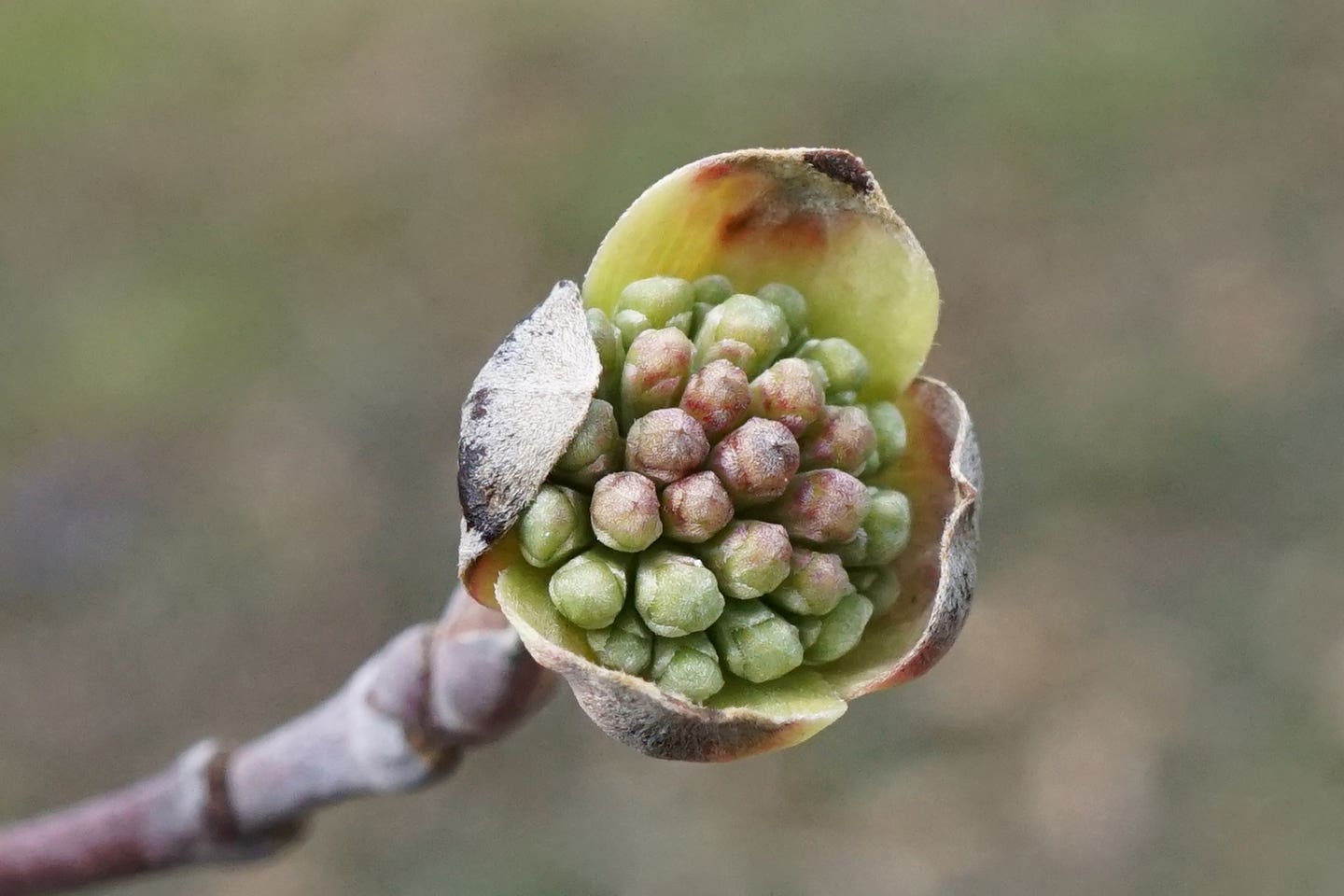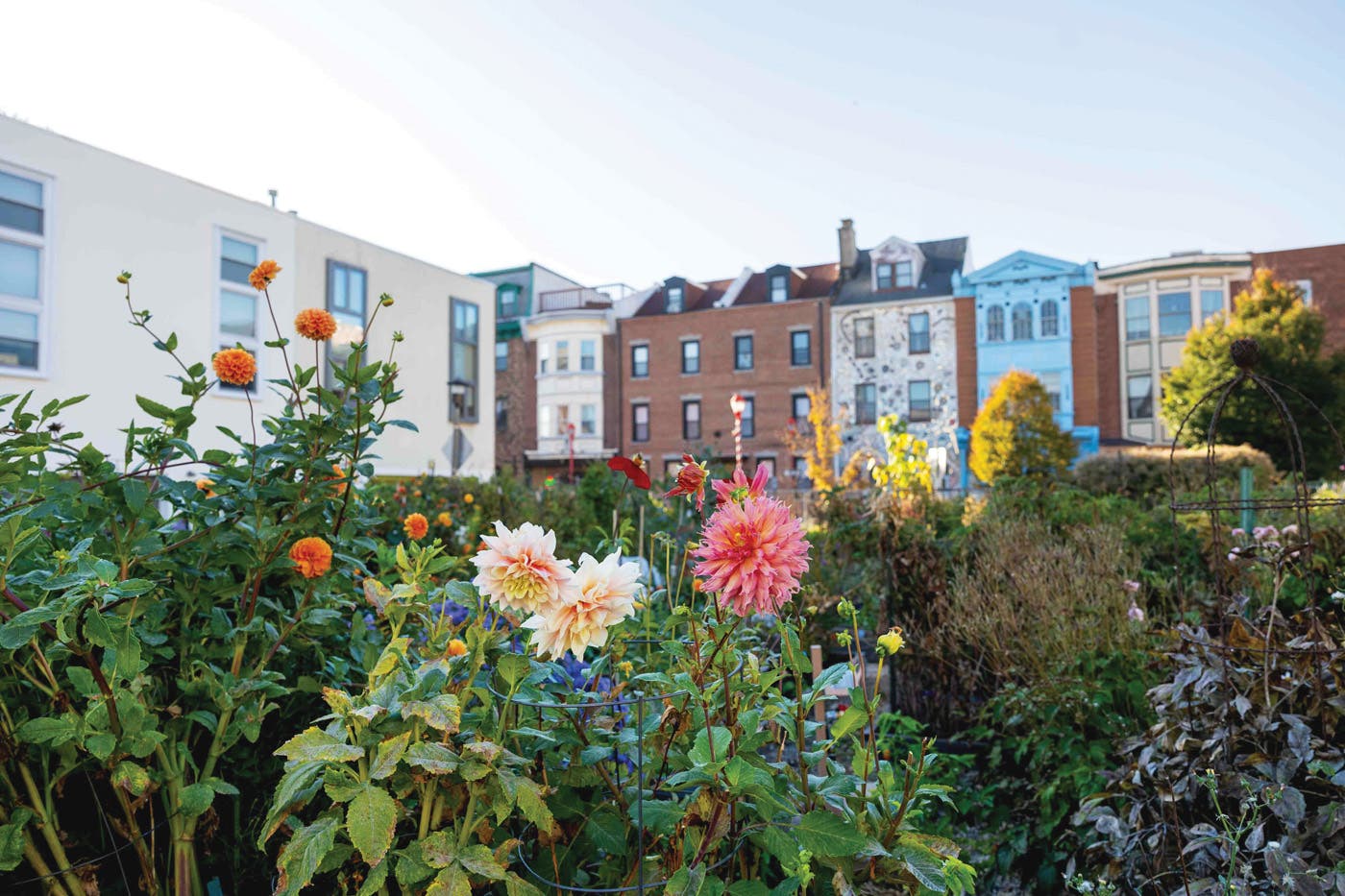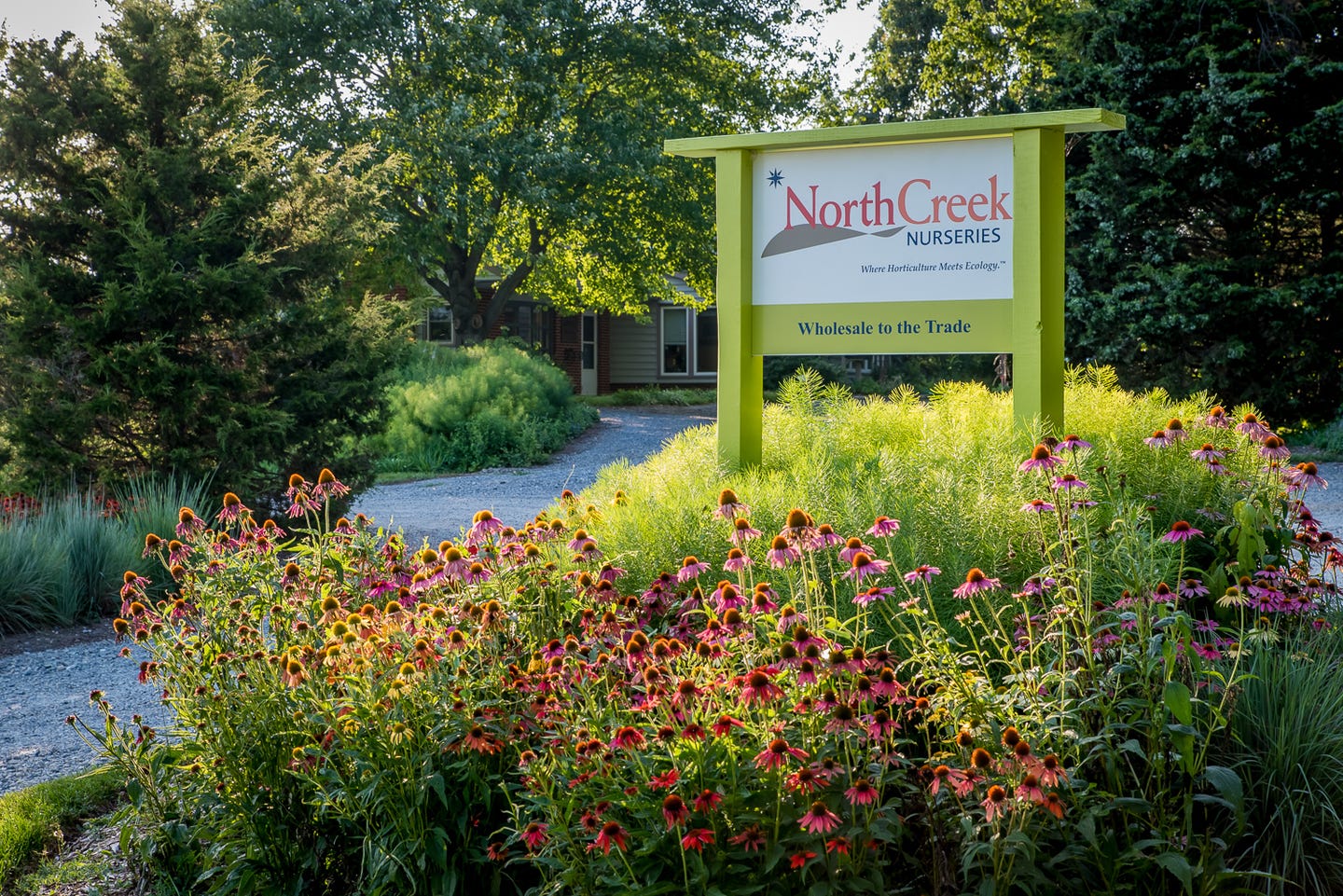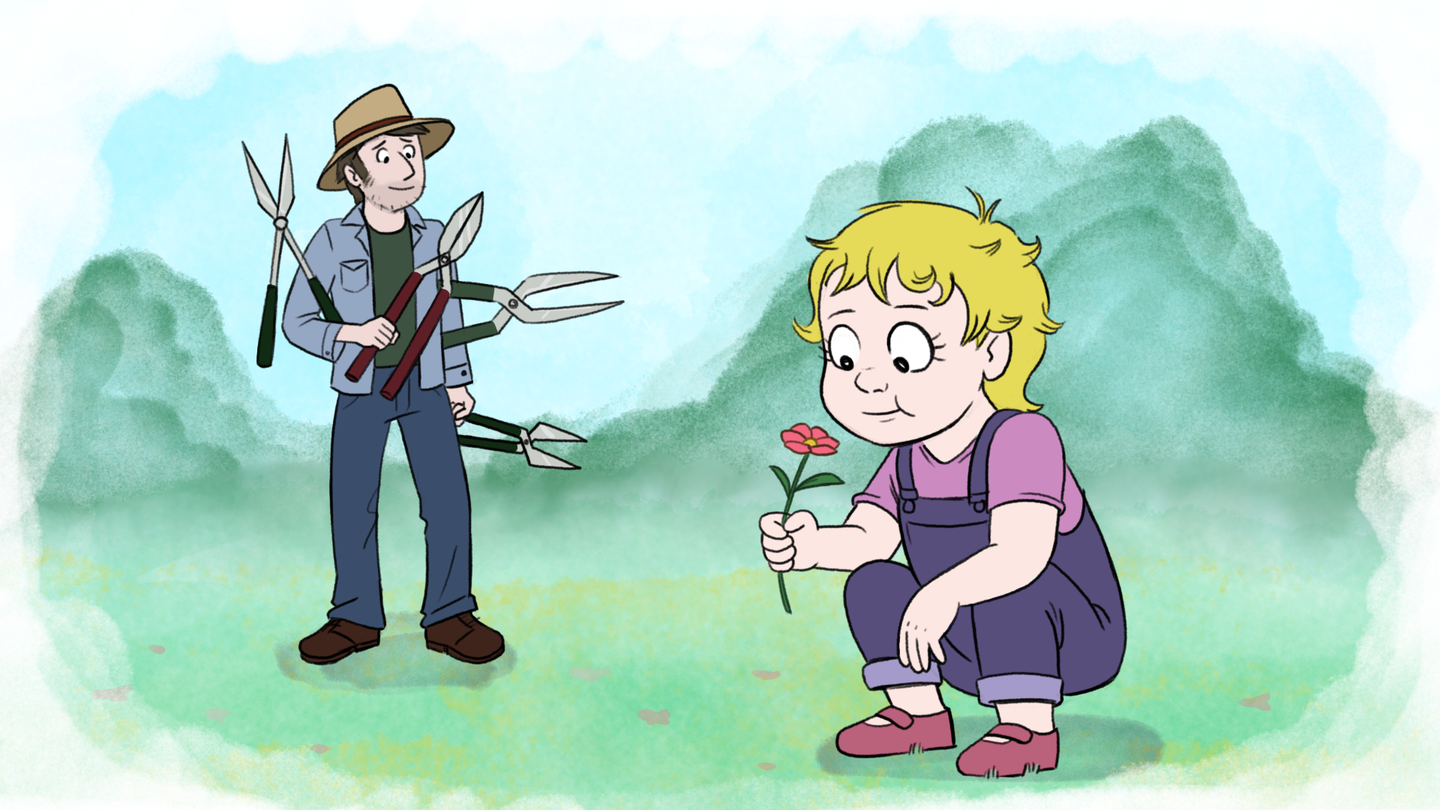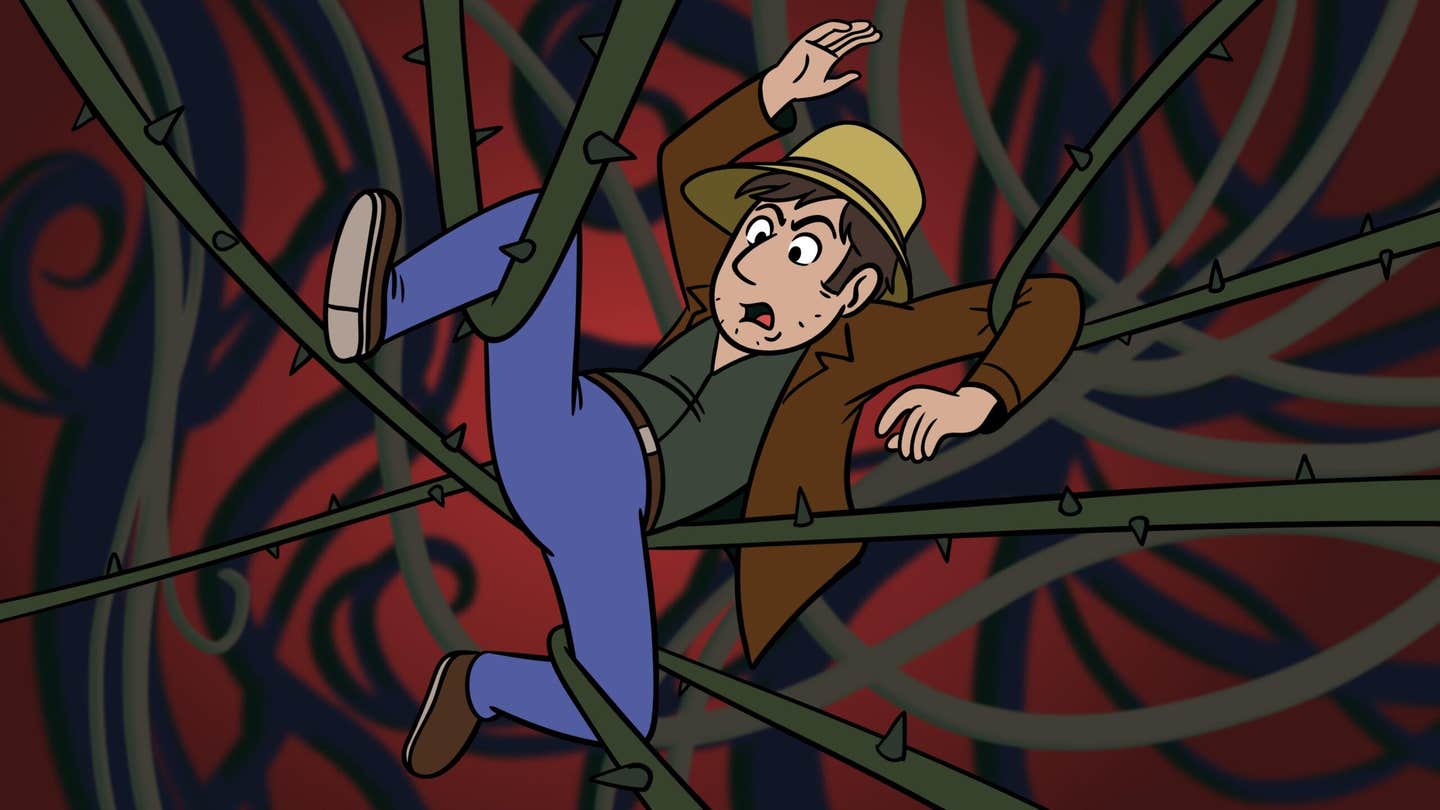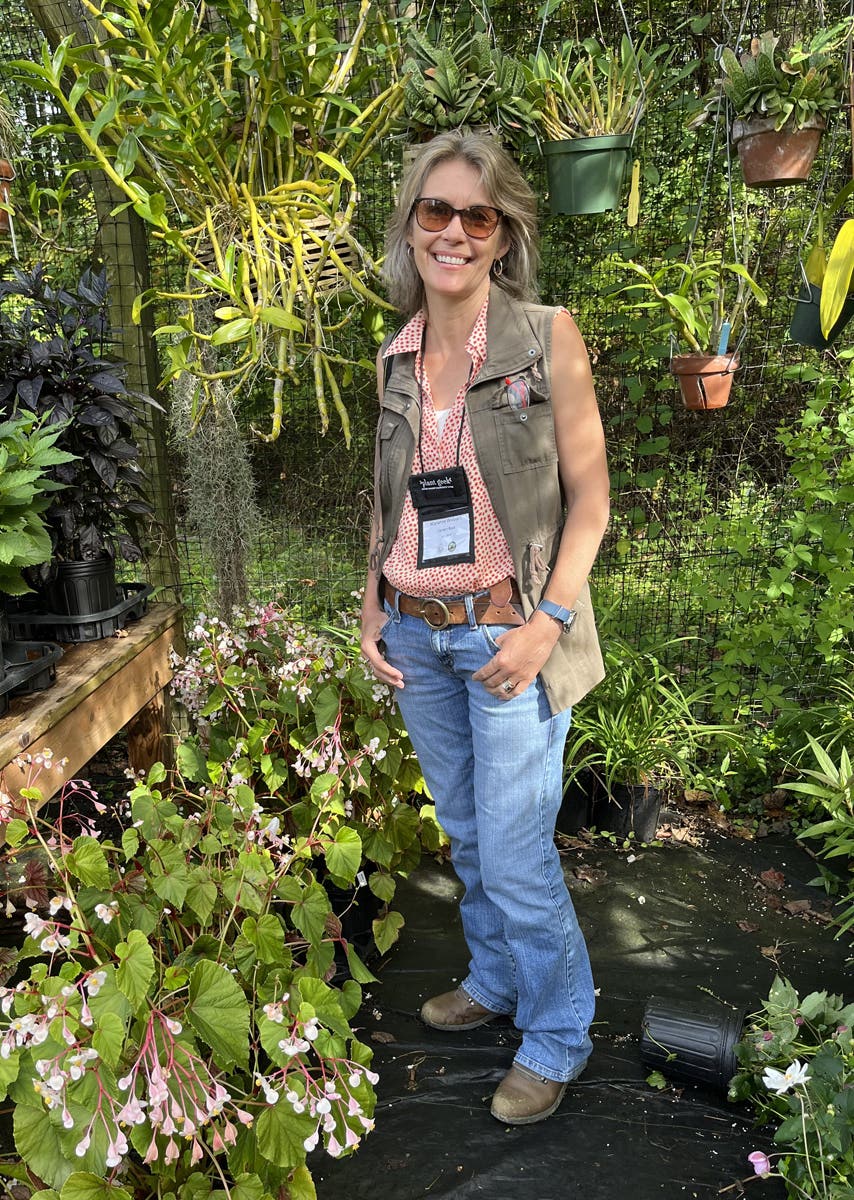Friendship Garden
It’s easier to talk when you are pruning grapes. It’s not like perching on the edge of a chair in a living room with your hands clutched together trying to find something to look at besides into the other person’s eyes.
Every January 6, my cousin Lucy and her ex-mother-in-law Mrs. Russell get together to prune Mrs. Russell's scuppernong grapes. It was a tradition they started long ago when Lucy's marriage to Dave was in its early happy years. That first January 6 after the marriage broke up, Lucy didn't know what to do. Through all the divorce business Mrs. Russell had been very silent, almost grim. But Lucy went over there with her Felco pruners anyway on the 6th, thinking why should she and old Mrs. Russell give up something they enjoyed so much as pruning grapes together, just because Dave ran off with a 33-year-old ashtray saleswoman.
It was a gray, cold day, and there was an awkward silence as they began, snipping off last year's canes and bundling up the old vines. But soon Mrs. Russell had to say something; Lucy was cutting too close to the spurs.
It's easier to talk about hurtful things when you are pruning grapes. It's not like perching on the edge of a chair in a living room with your hands clutched together trying to find something to look at besides into the other person's eyes. Pruning grapes, you are in the open air, there's the reliable snip snip snip, and you have to look at what you're doing. Soon Mrs. Russell began to talk about the grapes (they were on the ‘Higgins’ row). Then, “I don't know what got into Dave,” she said, studying a gnarled old spur. “Seems like it was just something foolish he had to do.”
It was getting dark when they finished, one of those dreary January early darks. Mrs. Russell stood back and looked at the vines, all light and trim. “Don't they look like they're ready for something new,” she said. Lucy felt better from that day on. She always said it was the grapes that did it—the ‘Higgins’ row.
About 10 years ago at a retired teachers’ meeting, an old lady gave me a little pink rose, its stem wrapped up in a wet paper towel. I didn't care much about roses at the time, but on the way home I fell in love with that pink rose—such an earnest tight little bud, with its silvery edges just beginning to unfurl, and an intoxicating fragrance that filled up the car. I tried and failed to root it, and then went on a search for the little old lady. After a year of inquiry I found her living in a seaside retirement village in a little concrete block house buried under an enormous rose bush.
“It's the ‘Melanie Konwisher’ rose,” she said. She had named it for the little fifth-grade girl who had brought it to her in an orange juice can one May morning in the early 1950s.
“Since then I've taken it with me everywhere I've gone,” she told me. She and the rose had lived in Tallahassee and Gainesville, Florida; Texas; Atlanta; and for three years she left it in the care of a friend while she served in the Peace Corps in Africa.
Wade had led a fascinating life, and in the three years it took me to successfully root a cutting of that rose I learned all about it. We wrote letters, exchanged favorite books, and visited when we could. The happy April that my ‘Melanie Konwisher’ rose bloomed for the first time, we put on a triumphant garden tea party for ourselves to celebrate.
Soon after that, Wade became too frail to live in the little concrete block house, and moved into an apartment in town. Then, after a bout with pneumonia she moved to Decatur, Georgia, to live with her daughter, and I lost her address. I waited and waited to hear from her. A couple of years went by.
Then, last April, just about the proper time to root a rose, I got a letter from an Atlanta nursing home. The top part of the letter was an official message from the staff. Wade had had a stroke, was not able to speak, walk, or move one side of her body. At the bottom was a handwritten note from Wade, spidery letters scrawling across the page and trailing off the edge: “Could you root a cutting of the rose for me? I regret that I do not have a ‘Melanie Konwisher’ rose here.” H


